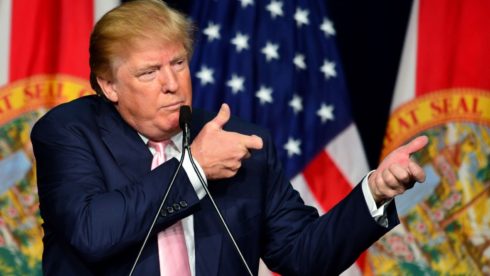President-elect Donald Trump’s announcement of sweeping tariffs on goods from Mexico, Canada, and China has drawn sharp criticism from the nations involved, raising fears of a potential global trade war. Trump proposed a 25% tariff on imports from Mexico and Canada, along with a 10% tariff on Chinese goods, citing efforts to curb illegal immigration and drug trafficking as the rationale behind the policy.
Mexican President Claudia Sheinbaum expressed grave concerns, warning of retaliatory measures that could harm the economies of all four nations. “To one tariff will follow another in response and so on, until we put our common businesses at risk,” she cautioned. Meanwhile, Canadian Prime Minister Justin Trudeau announced immediate plans to consult provincial leaders on crafting a response, emphasizing his country’s willingness to engage constructively with the United States despite the challenging circumstances.
Canada’s Leadership Calls for Unity Amid Economic Worries
Prime Minister Justin Trudeau underscored the importance of maintaining a robust trade relationship with the U.S., despite Trump’s contentious tariff plan. In a conversation with Trump, Trudeau emphasized that Canada’s border migration issues pale in comparison to those faced by the U.S.-Mexico border, stressing the need for collaboration rather than conflict.
The tariffs have already impacted Canada’s economy, with the Canadian dollar plunging to its lowest value since 2020. Deputy Prime Minister Chrystia Freeland highlighted the critical role Canada plays in supplying essential goods like oil, electricity, and critical minerals to the U.S. “The things we sell to the United States are the things they really need,” Freeland remarked, urging lawmakers to avoid panic and work methodically to address the challenge. Provincial leaders, including Ontario Premier Doug Ford, voiced strong opposition to the proposed tariffs, labeling them “devastating” to jobs and industries on both sides of the border.
Mexico Pushes Back Against Migration and Drug Trade Narratives
Mexican President Claudia Sheinbaum dismissed Trump’s tariff threats as ineffective solutions to migration and drug issues, pointing out her administration’s significant efforts to address illegal migration. She argued that the drug crisis in the U.S. is rooted in domestic consumption rather than external supply.
Sheinbaum also emphasized the interdependence of North American industries, particularly in the automotive sector. “If tariffs go up, who will it hurt? General Motors,” she noted, highlighting the adverse effects Trump’s policies could have on American companies. Mexico has signaled its readiness to impose retaliatory tariffs on U.S. imports, further intensifying trade tensions.
China Warns of Mutual Economic Harm
China joined the chorus of opposition, with its Washington embassy describing the proposed tariffs as a lose-lose scenario. Embassy spokesman Liu Pengyu refuted allegations that China facilitates the flow of illegal drug precursors like fentanyl into the U.S., asserting that Beijing has cooperated extensively with American authorities on such matters.
Trade relations between the U.S. and China are already fraught, with over half of the goods traded between the two nations subject to existing tariffs. Analysts fear that additional duties could exacerbate the economic strain, further destabilizing global markets. “China-US economic and trade cooperation is mutually beneficial in nature,” Liu stressed, calling for a collaborative approach to resolving disputes.
As January approaches, the looming tariff threats cast a shadow over international trade and diplomacy. Observers warn that escalating tensions could lead to significant economic disruption and long-term damage to global partnerships.
The potential damage this disruption could cause to international trade due to Trump’s threats may be far greater than anticipated. It is, therefore, crucial for Trump to adopt a more measured approach and foster harmonious economic relationships with other nations, which would ultimately serve America’s economic interests.














